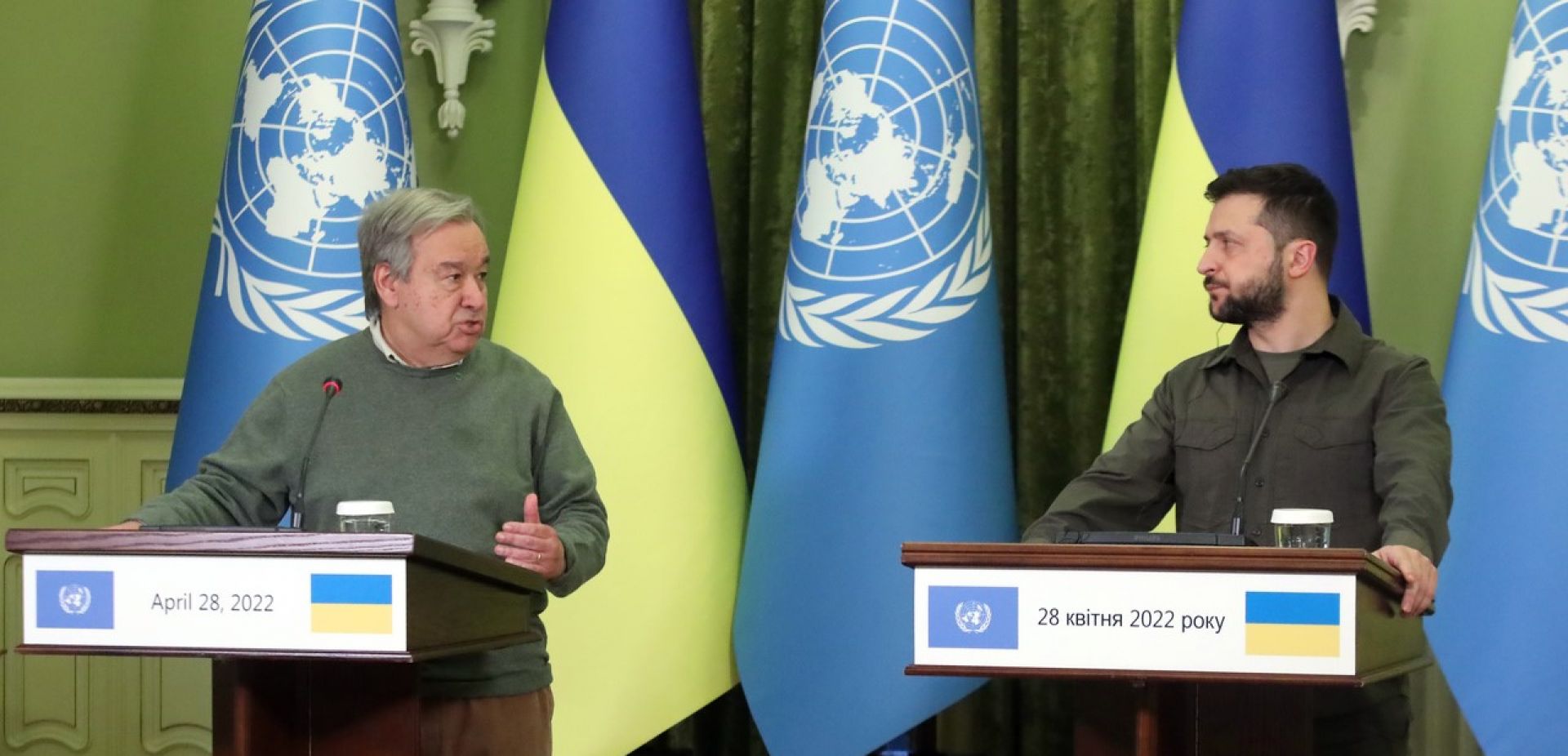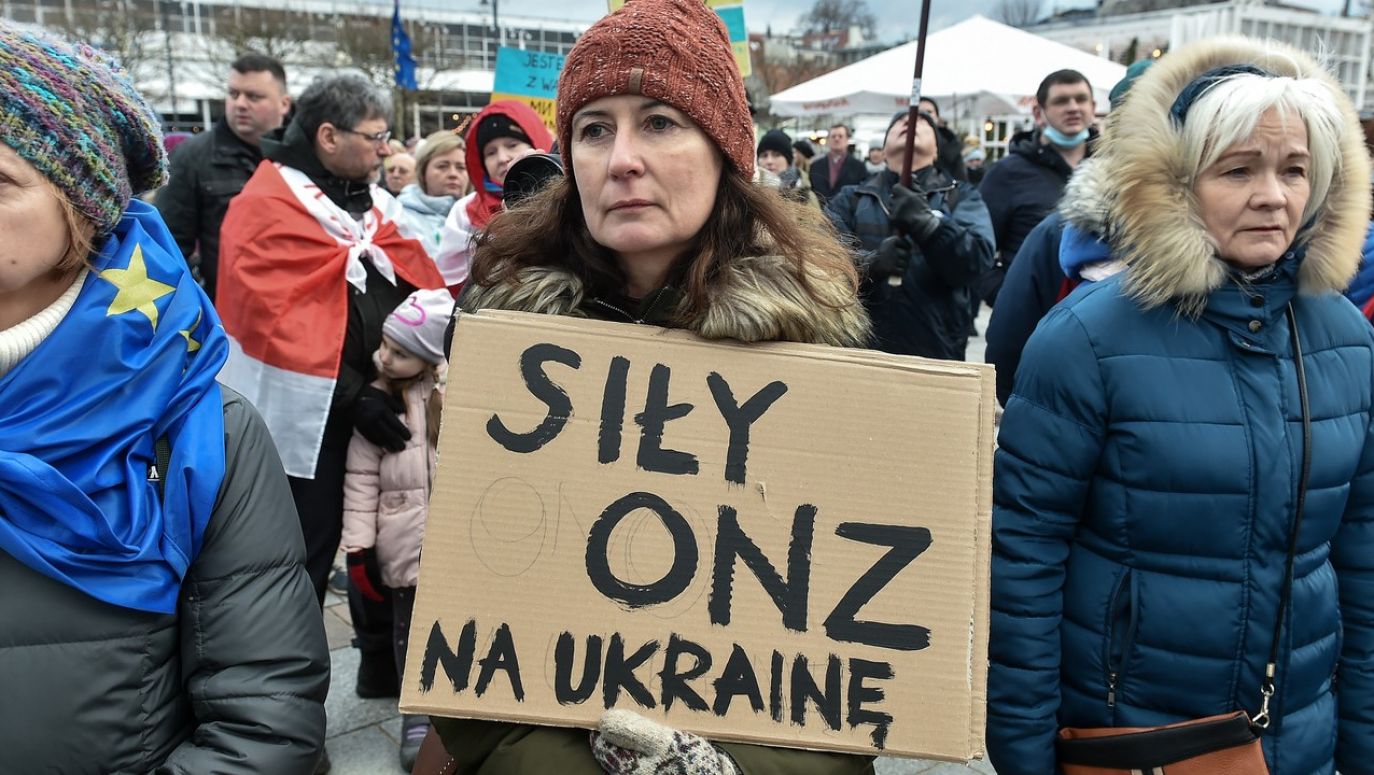These are not new questions, but the atrocious behaviour of the Russian forces has meant that the questions have become obvious. I posed them in 1995 in an article for the 50th jubilee of the UN. Then, I did not attempt to find constructive answers and neither did I pose any extreme conclusions. (see Tygodnik Solidarność no 454/1995). This was during the time of the Balkan and Chechen wars. Pope John Paul II addressed the assembly on this occasion, and his speech went down in international publications and culture. We know now that the UN did not do much to avoid crises, wars or their effects. This is the same nowadays, perhaps even worse.
Russia attacked Ukraine on February 24 and on March 3 Archbishop Gabriel Caccia, the permanent observer of the Holy See at the UN, appealed to the General Assembly for a cease fire and a return to diplomacy. He reminded the audience that the organisation had been founded to safeguard future generations against the plague of war. He stressed that the obligation of all members is the struggle to solve all conflicts by negotiation, mediation or other peaceful means even after the outbreak of hostilities. He cited the pope’s appeal about a cease fire and the rejection of war as a tool of aggression against the freedom of other states and as a means of resolving international disputes (quoted by the Catholic News Agency).
I can just imagine the sarcastic smirks of Sergey Lavrov, who knew that these were only words. These were only to be said elegantly and diplomatically, amounting to nothing, and these do not need to mean anything anyway. How could it be otherwise as it was his country that in 1945 guaranteed itself immunity in the order of powers within the unfortunate and untouchable Security Council. Piotr Zaremba has written vividly about this in his latest book “The Victorious Democracy. America, Roosevelt and Truman in the Second World War. A political history of the USA since 1900” recently serialised by Tygodnik TVP.
 SIGN UP TO OUR PAGE
SIGN UP TO OUR PAGE

I reiterate that if we are to question the sense of the UN we must read this work by Zaremba and read about the origins of this organisation which was accused of manipulation and impotence even then. Zaremba writes that the US deputy Secretary of State Joseph Grew, a former ambassador to Japan stated clearly enough that the veto will render the organisation defenceless by one hostile country, namely Soviet Russia. “ In practice, the veto ensures that the aim of the organisation will be negated. The possibility of preventing a future war will be but an illusion”. Prophetic words indeed as we have subsequently seen borne out.
This is not prehistory
The Security Council, it must be remembered has five permanent members; Russia (the former USSR), USA, China, France and Great Britain together with ten members chosen for a two year term. The USSR took care to ensure that the ten members would form a favourable ordering of power. Modern Russia certainly continues this policy. The Russians, Soviet officers undoubtedly, boycotted Trygve Lie, secretary-general until 1952, after the 1953 Korean crisis (they fostered opposition against him within his own office). They also prevented a successful resolution of the 1961 African crisis by Dag Hammarskjöld. He perished in an aeroplane accident whilst flying to conduct negotiations to solve the 1961 Congo crisis. A young diplomat could say well this is prehistory. But it is untrue, nothing has changed.
We could seem the same thing happening during the Balkan and Chechen wars. So many others are examples including Afghanistan when invaded by the Soviets, the manipulation by Kremlin specialists of African peoples during massacres there, in Iraq when John Paul II appealed and begged in sending his own envoys only then did the UN support his action. We have seen the Security Council’s and indeed that of the whole structure and their impotence during the during the first six months of the Russian invasion of Ukraine. Reform of the Council has been considered since 1993 but nothing has come of it.

 SIGN UP TO OUR PAGE
SIGN UP TO OUR PAGE








